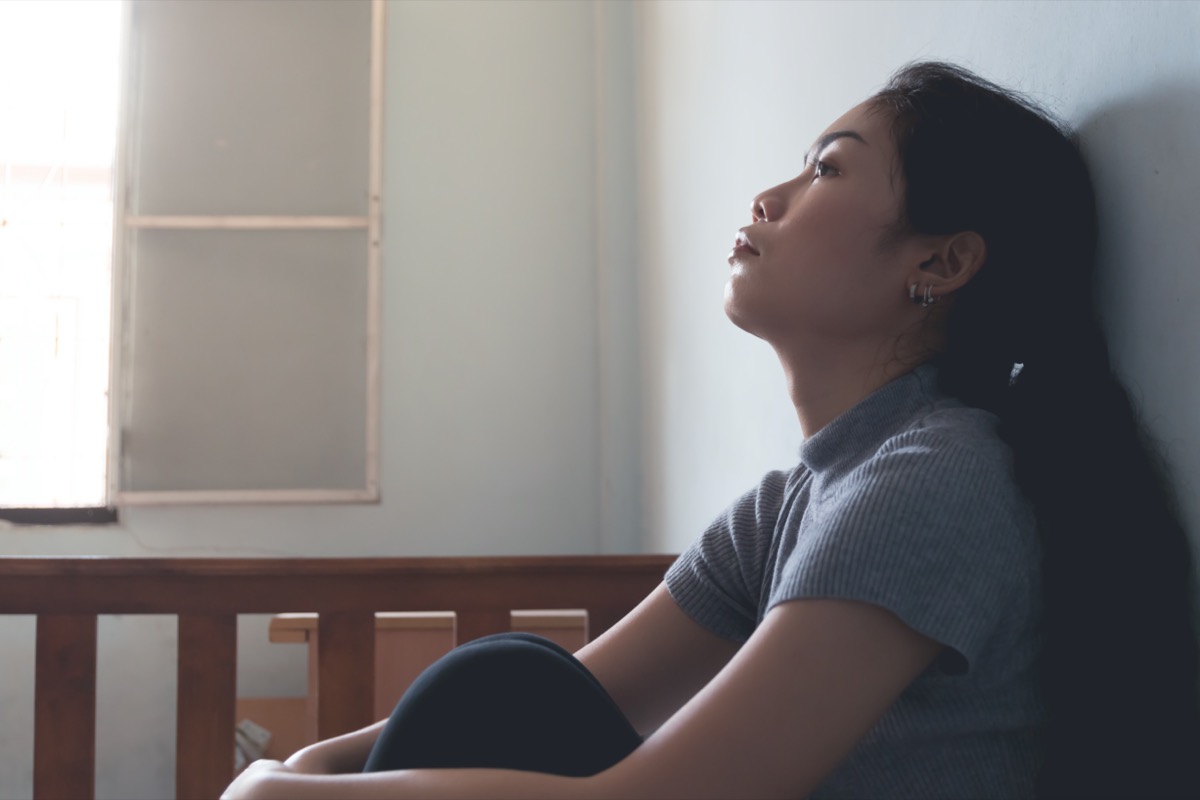Fatigue was the most commonly reported long-term symptom in the study, which was conducted in the U.K. Researchers interviewed 100 COVID survivors—including both patients who were admitted to the ICU and those who were hospitalized with less serious cases—and learned that 72 percent of the ICU group and 60 percent of the non-ICU group experienced fatigue after being discharged. The study notes that most respondents described their fatigue as “moderate” or “severe.” Fatigue can also be a symptom of an active COVID case, per the Centers for Disease Control and Prevention (CDC), but survivors are often left with chronic fatigue syndrome, U.S. News & World Report notes. And for the signs of coronavirus you may not be aware of yet, here are 5 Strange New COVID Symptoms That Doctors Are Reporting. The study states that “new or worsened breathlessness…was a significant symptom even several weeks post-discharge” for about 65 percent of ICU patients and 43 percent of the other hospitalized group. Of those who noted that symptom, 66 and 60 percent, respectively, had “a preexisting respiratory condition.” Among ICU patients aged 60 or older, 92 percent reported breathlessness, but that proportion dropped to 47 percent in younger patients. Additionally, 55 percent of the total ICU group who reported it were obese. Like fatigue, breathlessness is also a known active coronavirus symptom. In the most serious cases, patients need ventilators to help them breathe. Johns Hopkins lung disease expert Panagis Galiatsatos, MD, MHS, has said that it may take “three months to a year or more for a person’s lung function to return to pre-COVID-19 levels.” Like the researchers in the U.K. study, he predicts that survivors will have “new health care needs” once the pandemic is over, including addressing organ damage. And for more ways COVID affects you, check out Half of COVID Patients Have Damage to This Vital Organ, New Study Says. Almost half of the ICU group—47 percent—and 24 percent of the non-ICU group reported experiencing neuropsychological symptoms, including signs of post-traumatic stress disorder, after being discharged. Researchers weren’t surprised by the difference between these groups, as “PTSD symptoms are a well-recognized component of post-ICU syndrome caused by a variety of factors including fear of dying, invasive treatment, pain, delirium, inability to communicate, weakness, immobility, and sensory problems and sleep deprivation.” The median age of those with PTSD symptoms was 59; and 74 percent of those respondents had not been diagnosed with a mental illness prior to contracting COVID.ae0fcc31ae342fd3a1346ebb1f342fcb In a recent Italian study, 56 percent of former COVID patients interviewed showed signs of at least one mental disorder, and some survivors have even reported experiencing stress-related hair loss. For more updates on the coronavirus, sign up for our daily newsletter. Of the ICU group, 69 percent told researchers that their quality of life had been negatively impacted, compared to 46 percent of the non-ICU group. The study states that this metric includes issues with “mobility, self-care, usual activities, pain/discomfort, and psychological symptoms.” In a statement, research supervisor Manoj Sivan, MD, FRCP, of the University of Leeds said, “The emerging evidence is that for some, the road to recovery may take months and it is vital specialist rehabilitation is on hand to support them. This research gives an important insight into patient needs, and that will help shape services in the community.” And for more from health experts, check out This Bad Habit Could Increase Your Risk of Dying From COVID, Doctor Says.



